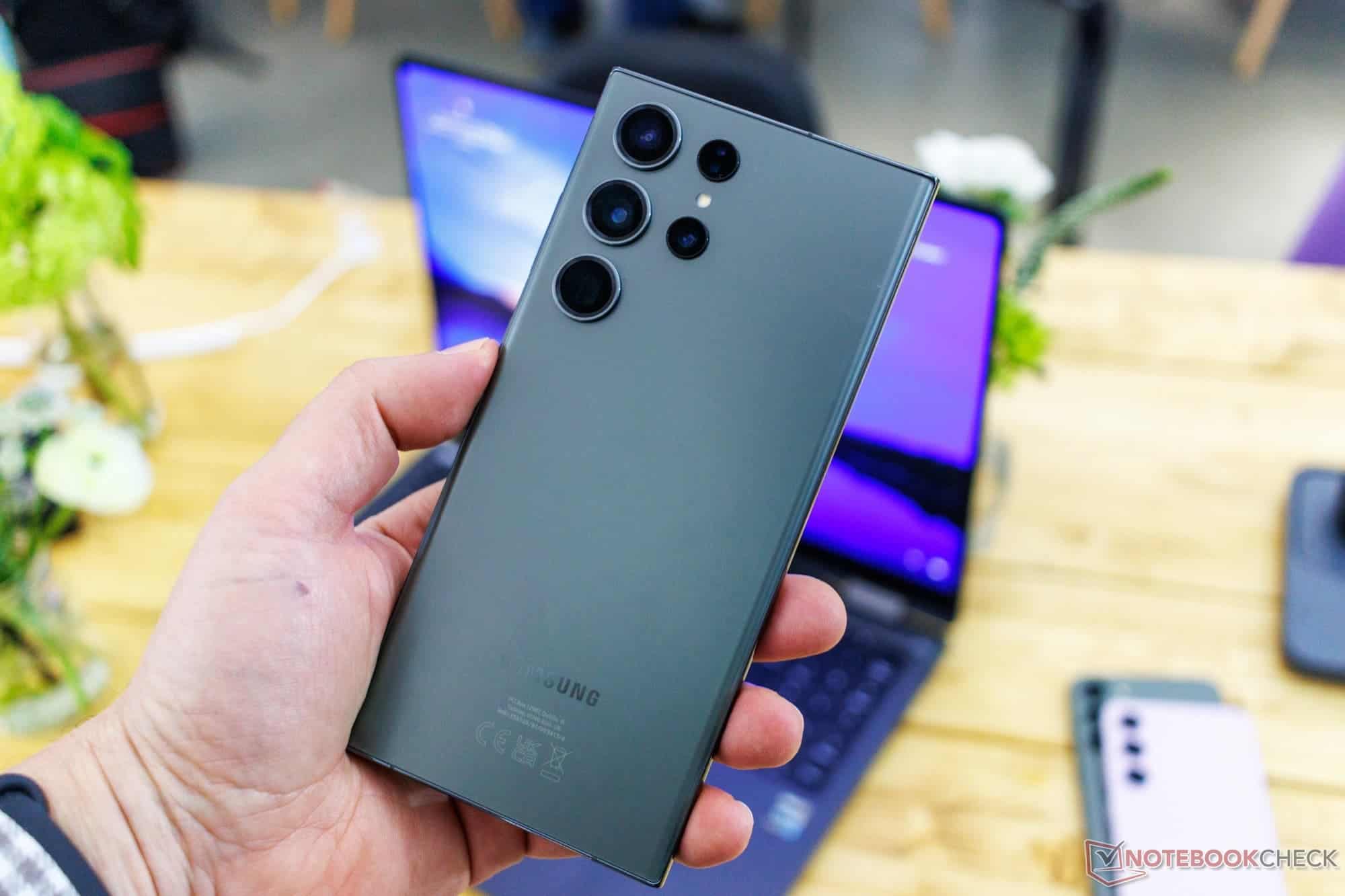The launch of the Samsung Galaxy S23 Ultra has already come to life but not a lot of people have it yet. The device is still up for pre-order at the moment. It will get into the hands of end users from the 17th of February. However, a lot of reviewers and testers already have it, and their reviews and tests give us a glimpse of almost every feature of the phone.
There are also a lot of comparisons going on all over the internet. As a direct competitor, many have compared the Galaxy S23 Ultra to the iPhone 14 Pro or the Pro Max. We have already seen battery drain comparisons, camera comparisons and speed comparisons. The latest in comparison we have just come across is the Benchmark score comparison.
Samsung Galaxy S23 Ultra Still Behind iPhone 14 Pro Max
Before the release of the Samsung Galaxy S23 Ultra with the Snapdragon 8 Gen 2 for Galaxy chip, Apple’s A16 Bionic chip was the leading mobile phone chip in terms of speed. Now that Samsung has finally released the S23 Ultra, Apple is still leading. One would think that Samsung’s special Snapdragon chip for the Galaxy S23 Ultra was going to kick the A16 off the top. Unfortunately, that could not happen as the data from a Benchmark score clearly shows.
A new Geekbench score that was cited by CompareDial shows that the Samsung Galaxy S23 gained a single-core score of 1480. Meanwhile, Apple’s iPhone 14 Pro which is powered by the Bionic A16 chip attained a single-core score of 1874. In percentage difference, the iPhone 14 Pro got about 21.02% higher score than the Galaxy S23 Ultra. This simply translates that the iPhone is about 21% faster than the Samsung in terms of single-core score.
Read Also: Samsung Galaxy Z Flip5 laughs at the Oppo Find N2 Flip’s face
Gizchina News of the week
Taking a look at the multi-core score tells a little bit of a different story. This is because the gap between both phones is not as large as that of the single-core score. With the multi-core score, the Samsung Galaxy S23 Ultra achieved a score of 4584. The iPhone 14 Pro Max on the other hand achieved 5384. This makes the iPhone 14.86% faster than the Samsung for multi-core score.
This does not come as much of a surprise because it has been the norm for a couple of years now. Last year’s Galaxy S22 Ultra could not also keep up with the iPhone 13 Pro in terms of Benchmark scores. The Samsung Galaxy S22 Ultra came with two chipset options, the Snapdragon version and the Exynos version. However, none of these chips were able to match up with Apple’s A15 chip.
The good news here is that Samsung is gradually closing the gap. This year, Samsung had to do away with its own Exynos chip and fully focus on the Snapdragon chip for all of its flagship devices. This could be a contributing factor to the improvements we see today.
Apple Could Widen the Gap over the Galaxy S23 Ultra when the iPhone 15 Pro Replaces the iPhone 14 Pro
In September this year, Apple will launch the iPhone 15 Series as successors to the iPhone 14 series. The next flagship devices are set to feature Apple’s Bionic chip A 17. It is claimed that this chip could feature a 3nm node from TSMC. Analysts also claim that the 3nm chip will bring about 10 to 15% performance improvements and also feature reduce battery consumption by 35%.


























